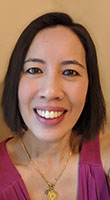- Campuses :
- Twin Cities
- Crookston
- Duluth
- Morris
- Rochester
- Other Locations

literacy & rhetorical studies
center for writing
writing.umn.edu
center for writing
writing.umn.edu
Faculty
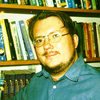 David Beard Writing Studies (UMD) |
David Beard is interested in interdisciplinary research in rhetoric and writing studies. He explores the contemporary and historical intersections between English, communication, philosophy and education in the common project of teaching and researching reading, writing, speaking, listening and visual literacy in the modern university. |
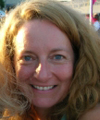 Martha Bigelow Curriculum & Instruction |
Martha Bigelow’s interests include the role of native and second language literacy in the acquisition of second language oral skills, the multilingualism and multiliteracy of immigrant and refugee youth, the intersection of race, religion, gender and ethnicity among African immigrant youth, the educational needs of adolescent English language learners with limited formal schooling, and the role of education policies in access to education for adolescent immigrant youth with limited formal schooling. |
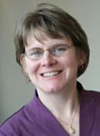 Lee-Ann Kastman Breuch Writing Studies |
Lee-Ann Kastman Breuch’s interests include technical communication programs; theory of composition and technical communication instruction; computer pedagogy; visual rhetoric; writing across the curriculum; writing center theory; and World Wide Web educational support and development. She has recently taught the graduate courses “Development of Principles in Technical Communication Pedagogy I” and “Computer Pedagogy.” |
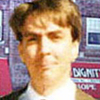 Patrick Bruch Writing Studies |
Patrick Bruch’s areas of interest include the theory and history of composition studies, critical literacy and critical pedagogy, and cultural studies. |
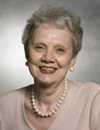 Karlyn Kohrs Campbell Communication Studies |
Karlyn Kohrs Campbell conducts research in rhetorical criticism, rhetorical theory, political communication, women’s communication, and social movement rhetoric. Campbell teaches graduate courses on rhetorical theory, rhetorical criticism, feminist rhetoric, and political communication. |
 Daniel Emery Daniel Emery Center for Writing |
Dan Emery’s research interests include writing across the curriculum, critical theory, and the history of writing and writing instruction. |
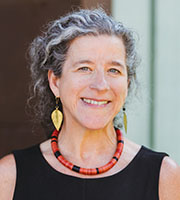 Pamela Flash Center for Writing |
Pamela Flash’s research interests include writing pedagogy (particularly at post-secondary levels), writing across the curriculum, writing in the disciplines, and the use of qualitative research methods (particularly collaborative action research and ethnographic research) to enable pedagogic change on individual, departmental, and institutional levels. As Director of Writing Across the Curriculum, she leads the Writing-Enriched Curriculum project, a process-approach to facilitating instructional change within the University's undergraduate units. |
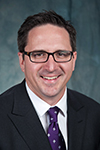 David Gore Communication (UMD) |
David Gore studies eighteenth century British political economy and nineteenth century American religion, but always with an eye toward how it can inform current controversies. His interests focus on the intersection of modes of living or ways of being and the commitments and obligations of public life. Gore's recent work examines the influence of religious and secular modes of life on public discourse in times of political and social upheaval. He regularly teaches courses on globalization, the history of rhetoric, and self-awareness as a guide for developing a philosophy of life. |
 Richard Graff Writing Studies |
Richard Graff’s interests include classical and modern rhetorical theory; stylistic theory and methods of rhetorical criticism; & history of rhetorical education. Graff’s graduate teaching focuses on modern and contemporary rhetorical theory and communication theory and practice including a course on “Major Figures in the Rhetorical Tradition: Modern Era.” |
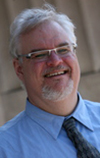 Ronald Greene Communication Studies |
Ronald Greene investigates how institutions regulate and advocate communication to improve the quality of democracy. |
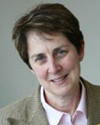 Laura Gurak Writing Studies |
Laura Gurak’s interests include rhetorics of science and technology, rhetorical criticism, internet studies, online research methods, social aspects of computing, the law and technology (intellectual property and privacy), and technical and professional communication. She has recently taught the graduate course “Rhetoric, Privacy, and Persuasion in Cyberspace.” |
| Michael Hancher English |
Michael Hancher’s interests include the history of the book, book production and illustrations, social conditions for literacy, and technology and literacy. Hancher has taught the graduate course “The History of Writing Technologies.” |
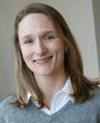 Kirsten Jamsen Center for Writing |
Kirsten Jamsen’s research interests include writing consultancy, writing across the curriculum, teacher professional development, and the role of technology in writing centers and classrooms. |
 Kendall King Kendall KingCurriculum & Instruction |
Kendall King's scholarship addresses ideological, interactional and policy perspectives on second language learning and bilingualism, and is concerned with two broad questions. First, which practices, policies, and programs best facilitate minority language development and maintenance? And second, which pedagogical, policy and interactional approaches best serve minority language students? At the University of Minnesota, she teaches courses in sociolinguistics, language policy, language research methods, and language education, and also (co)coordinates the undergraduate TESL minor and the MA in TESOL in Higher Ed. |
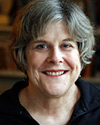 Anne Lazaraton Writing Studies |
Anne Lazaraton's research interests including applied linguistics, discourse analysis, English language in use, language assessment, and qualitative research methodology. She is currently working on a project that examines how domestic technical and professional writing instructors discursively position the (mostly Chinese) international students in their classes. |
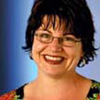 Amy Lee Postsecondary Teaching & Learning |
Amy Lee’s research interests include composition theory, critical pedagogy, and writing pedagogy. |
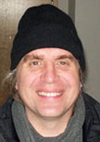 Timothy Lensmire Timothy LensmireCurriculum & Instruction |
Timothy Lensmire’s current research and writing focus on race and education, and especially on how white people learn to be white in our white supremacist society. Grounded in critical white studies, his work contributes to the ongoing effort to figure out how best to work with white students (in K-12 schools and universities, in teacher education, in teacher development) on issues of race and social justice. |
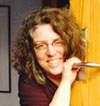 Katie Levin Center for Writing |
Katie Levin's research interests are primarily in writing center studies, especially through a social justice lens and using qualitative research methods. Katie is fascinated by the complex push-and-pull of privilege, power, discourse, identity, and resistance in and outside of the writing center. |
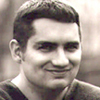 John Logie Writing Studies |
John Logie’s research interests include rhetorical theory, rhetoric of electronic writing spaces, sophistic rhetorics, constructions of authorship, intellectual property, visual rhetorics, computer-mediated communication, and collaborative writing. Logie has recently taught the graduate course “Science Writing for Popular Audiences.” |
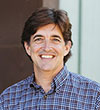 Matt Luskey Center for Writing |
Matthew Luskey’s research interests include writing pedagogy, writing across the curriculum, writing in the disciplines, and faculty professional development. |
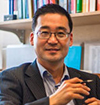 Chongwon Park Chongwon ParkLinguistics (UMD) |
Chongwon Park’s research revolves around the hypothesis that the subtle aspects of formal (structural) properties of natural language are motivated by their communicative functions. To test this hypothesis, he has been exploring syntactically marked constructions such as multiple subject and object constructions in Korean, and copy-raising constructions (as in John seems like he is a linguist) in English. More recently, he has been adopting statistical methods to test the aforementioned hypothesis using the Corpus of Contemporary American English. |
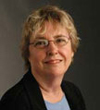 Rosemarie Park Organizational Leadership, Policy and Development |
Rosemarie Park’s research and teaching interests include adult education; educational needs of the workforce; assessment of basic skills as they relate to hiring and promotion; and the development of plain-language criteria for use in legal, technical, and government settings.
|
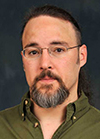 Michael Pfau Communication Studies (UMD) |
Michael Pfau’s research interests center around public discourse, rhetorical argument, and political rhetoric, with a particular (but not exclusive) interest in 18th and 19th century U.S. political discourse. More specifically Pfau's research has tackled a variety of rhetorical theories, genres, and communication modalities that include conspiracy rhetoric and argument, the rhetorical theory and practice of fear appeals, civic republicanism, partisan rhetoric, and political institutions and deliberation. |
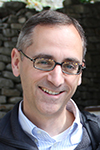 Dan Philippon English |
Dan Philippon is interested in environmental discourse and practice, particularly as it intersects with science, nature, and environmental writing. He has published on ecocriticism, sustainability, place-based writing, environmental history, food writing, and related subjects. |
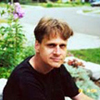 Thomas Reynolds Writing Studies |
Tom Reynolds’s research interests include various aspects of composition studies, including literacy history, popular rhetorics, technologies for writing instruction, and writing across the curriculum. |
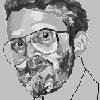 Donald Ross Writing Studies |
Donald Ross’s central interests revolve around literature, including the American “Renaissance” and movements which preceded and followed it, the theory of the novel, and travel writing. Ross is also interested in composition, including the role of computers and word processors in writing instruction and writing in academic disciplines. |
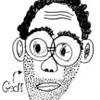 Geoffrey Sirc English |
Geoffrey Sirc’s research interests revolve around composition studies and writing pedagogy. |
Jasmine Kar Tang |
Jasmine Kar Tang's research interests involve writing studies, writing center studies, critical race and ethnic studies, linguistic diversity and rights, Asian American studies, feminist studies, and qualitative research methodologies. |
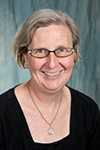 Elizabethada Wright Elizabethada Wright English, Linguistics, and Writing Studies (UMD) |
Dr. Wright does work on the rhetoric of memorial place as well as on nineteenth-century women’s rhetoric. With all her work focusing on how marginalized people find voice in societies that try to silence them, most recently she has been examining the influence of French Catholic women religious (commonly known as nuns) on writing pedagogy in the United States. |



